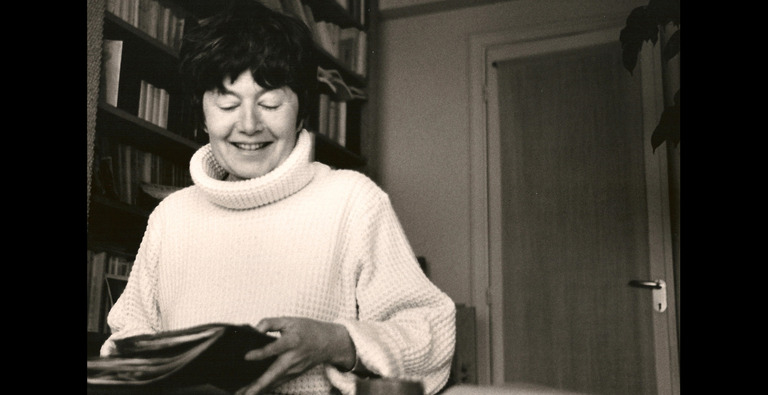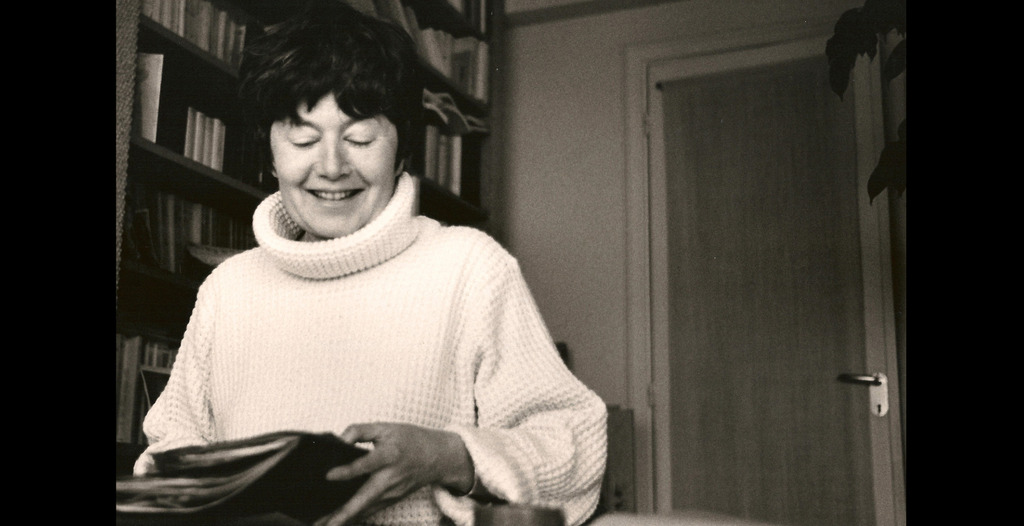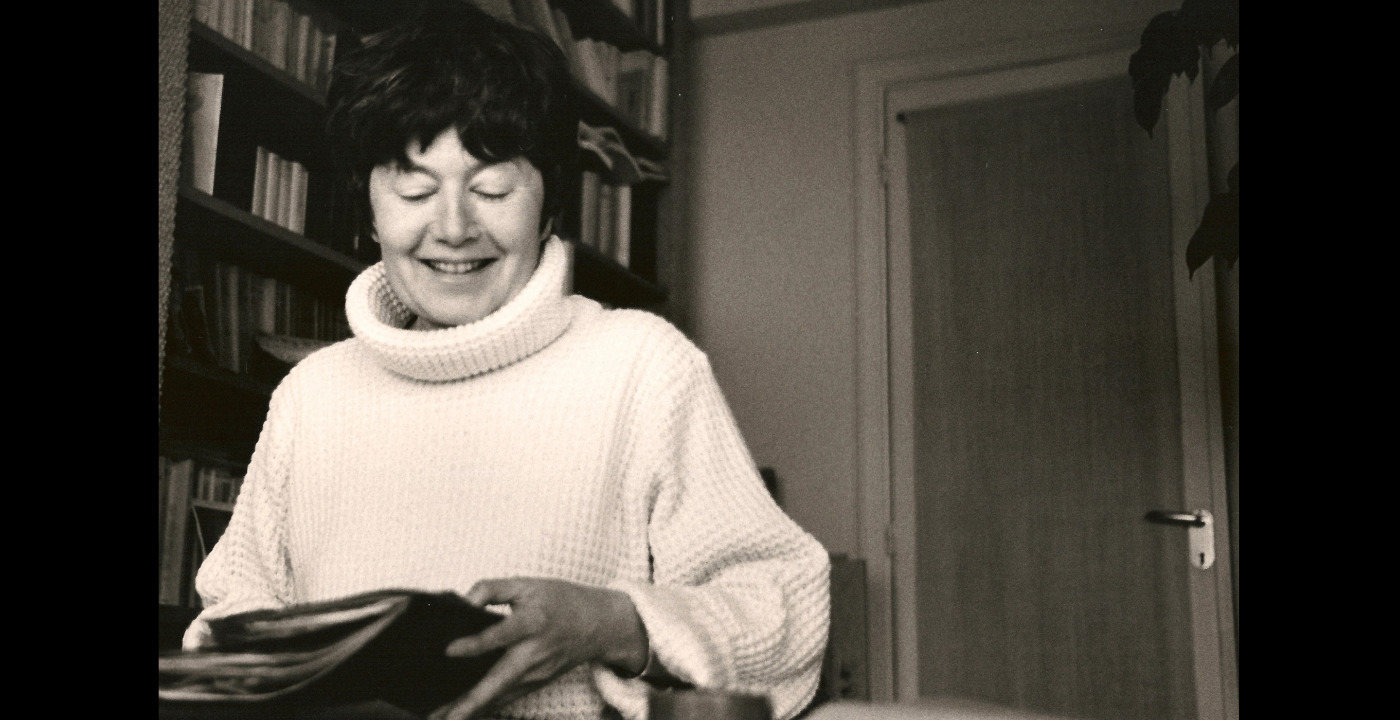Birth
1930
Death
N/A
Luce Irigaray is very well known as a feminist philosopher and a key exponent of sexual difference feminism, a branch of feminist thought that emphasises the differences between men and women. Her earlier work criticised the patriarchal foundations of the Western symbolic order and the philosophical canon. She then explored the cultural changes needed to understand the world from a woman’s perspective, and how dialogue between the male and female perspectives could become possible. Subsequently, she turned to meditation, yoga, and practices of breath for more embodied and ecologically sustainable ways of living. Her work spans philosophy, religion, and spirituality; combines theory, poetics, and myth; and engages with law, politics, and culture. It remains important and provocative.
Personal Information
Name(s)
Luce Irigaray
Date and place of birth
1930, Blaton, Bernissart, Belgium
Death and place of death
N/A
Family
No information available
Marriage and Family Life
No information found. Luce Irigaray prefers not to reveal personal information about her upbringing or family in interviews, as she thinks intellectual women tend to be reduced to their personal lives.
Education (Short Version)
BA and MA degrees from the University of Louvain, and two doctorates, one in linguistics (1968), and the other in philosophy (1974), both from the University of Paris.
Education (Long Version)
Irigaray has a distinguished academic record across multiple disciplines and institutions. She first studied for her BA and MA degrees at the University of Louvain, graduating in 1955, before working as a high school teacher in Brussels. She moved to Paris in 1960 to continue her education. She completed a masters in psychology in 1961, a specialist diploma in psychopathology in 1962, and a doctorate in linguistics at the University of Paris Nanterre in 1968. Her doctorate, on how psychopathology affects linguistic functioning and speech production, was published as Le langage des déments in 1973. During this period, she also trained as a psychoanalyst with the École Freudienne de Paris, founded by Jacques Lacan. She began to teach at the University of Paris Vincennes, where she completed her second doctorate in philosophy in 1974, published in English as Speculum of the Other Woman. She was dismissed from her post at Vincennes due to her disagreements with Lacan. She continued her career at the Centre National de la Recherche Scientifique, Paris, where she became a Director of Research in Philosophy in 1982.
Religion
Irigaray is not aligned explicitly with any formal religion, and her earlier work criticised patriarchal Western metaphysical and religious frameworks. However, she also reclaimed female mystics such as Teresa of Avila, and she reinterpreted Mary as a symbol of female creativity and maternal power. She proposed the idea of female divinities as ideals to which women can aspire, aiding their growth. Subsequently, she became engaged with the Eastern spiritual practices of yoga and meditation. She sees them as offering a non-dualistic and embodied alternative to Western subjectivity, centred on the breath as a fluid medium of connection. Her 2004 book Everyday Prayers is a set of poems expressing daily meditative responses to nature and the changing seasons. Her spiritual outlook can thus be described as eclectic, combining Eastern meditative practices, the cultivation of breath, feminist mysticism, and a critique of traditional patriarchal theology.
Transformation(s)
Irigaray was studying for her doctorate in Paris at the time of the 1968 student protests. University of Paris Nanterre was at first the epicentre of the unrest. The atmosphere of the time, and its radical challenge to authoritarian systems, had an important influence on her.
Lacanian psychoanalysis was also a formative influence. For Lacan, the unconscious is structured like a language: that is, language organises and penetrates into the depths of our subjectivity. But for Lacan the symbolic order–the entwined order of language, law, and societal structure–is governed by the name of the father; it is necessarily patriarchal. Irigaray took up Lacan’s emphasis on language and subjectivity, but began to suggest that there could be an alternative symbolic order allowing for two modes of subjectivity, desire, and experience, masculine and feminine. This led her to be expelled from the École Freudienne and dismissed from her position at Vincennes. For her, this must have confirmed that patriarchy maintains itself by excluding any feminine voice.
Contemporaneous Network(s)
Irigaray first became known in the Anglophone world under the heading of ‘French feminism’, a school of feminist thought exploring language, philosophy, and psychoanalysis, together with Julia Kristeva (1941– ) and Hélène Cixous (1937– ). The key anthology promoting this idea of ‘French feminism’ was New French Feminisms by Elaine Marks and Isabelle de Courtivron, appearing in 1981. However, this is a rather debatable network, since Marks and Courtivron featured French-based women thinkers who foregrounded language, the body, and subjectivity in contrast to a presumed Anglophone focus on social roles and the social construction of gender. French feminists like Christine Delphy who focused on the division of gendered labour were omitted, and the whole idea of ‘French feminism’ is questionable.
A more organic network existed between Irigaray and Italian feminists of the 1970s and 1980s, particularly the philosopher Adriana Cavarero (1947– ), a close interlocutor of Irigaray’s for a while. Irigaray’s work was widely read in Italy and her concepts were adopted, for instance by the Milan Women’s Bookstore Collective. Luisa Muraro (1940– ) developed the concept of affidamento (entrustment)–relationships of mentorship amongst women–which drew on Irigaray’s view of the need to create mother-daughter relationships at a symbolic and not merely biological level.
During the same period, Irigaray regularly collaborated with women in the Italian Communist Party, spoke at the party’s summer festivals, and contributed to the party’s newspaper L’Unita. She never became a formal party member.
Since 2003, Irigaray has held summer schools with groups of graduate students who are engaging with her thoughts and writings. Collectively, these are called the Luce Irigaray International Seminar. The schools have taken place at the Universities of Nottingham, Liverpool, Queen Mary University of London, University of Bristol, University of the West of England, amongst others, with participants from around the world.
less
Significance
Works/Agency
Irigaray has published more than forty books, which have been translated into many languages. Her writings first became known to English speakers under the rubric of ‘French feminism’, but the important work of Margaret Whitford showed that Irigaray’s philosophical project did not really have much to do with expressing the female body in language. Rather, Irigaray offered a wide-ranging critique of the Western philosophical tradition as giving voice only to a single form of subjectivity, the masculine one. The Western symbolic order both constituted and expressed this masculine perspective.
According to Irigaray herself, the critique of this order occupied the first phase of her work, represented by such books as Speculum of the Other Woman (1974) and This Sex Which Is Not One (1977). The second phase explored the possibility of a feminine subjectivity and the necessary cultural mediations to bring this form of subjectivity into being, represented by books such as An Ethics of Sexual Difference (1984) and Sexes and Genealogies (1987). The third phase explored the possibility of dialogue between two sexuate forms of subjectivity, represented by works such as I Love to You (1992). But this periodisation dates from the mid-1990s, so does not capture Irigaray’s work since then, such as her engagement with yoga and Indian religion and with a practice of breath.
Irigaray’s work has had a huge impact on feminist theory, and on the confluence between feminist thought and post-structuralism. She has challenged equality as a goal for feminism, instead advocating difference. But, for her, this is not a matter of recognising different values and qualities women already have, since the symbolic order has comprehensively excluded the feminine and reduced it to merely the negative other of the masculine. Women’s difference has yet to be created, by constructing the linguistic mediations that will give it a voice. For Irigaray, then, the goal of sexual difference feminism is a total cultural reconstruction.
Reputation
Luce Irigaray is widely seen as an important feminist theorist and philosopher of the present time. Her reputation was probably at its peak in the 1990s and early 2000s. Initially she was regarded as a ‘French feminist’ and associated with ‘écriture féminine’ – though neither of these were concepts Irigaray herself used. The work of Margaret Whitford in the early 1990s made English-speaking readers aware of the far wider significance of Irigaray’s work. From this point, Irigaray was increasingly identified as a feminist philosopher, and her thought and writing became important for the development of feminist philosophy and helped it to gain recognition and acceptance within the academy, especially in Continental philosophy circles and departments.
Since the 2000s, with the rise of Judith Butler’s very different conception of gender as performative, the popularity of Irigaray’s work has waned amongst feminist theorists and philosophers. Irigaray’s emphasis on sexual difference seems to reinforce rather than question the binary sex division. Nonetheless, interest in her work remains strong, although increasingly specialised.
Irigaray has received four honorary doctorates: from the School of Advanced Studies, University of London; from University College London; from the University of Nottingham; and the University of Bergen.
Legacy and Influence
The Luce Irigaray Circle was founded in 2006 at Stony Brook University by Sabrina Hom, Serene Khader, and Mary Rawlinson. The Circle organises regular conferences and events around Irigaray’s thought and its interpretation.
The Luce Irigaray International Seminar was established in 2011.
less
Controversies
Controversy
One controversy surrounded her disagreement with Lacan, as expressed in her doctoral thesis in philosophy and first book Speculum of the Other Woman. The disagreement concerned her critique of the patriarchal symbolic order. For Irigaray, contrary to Lacan, this order could in principle be changed to make room for two speaking subjectivities, masculine and feminine.
Another more enduring controversy surrounds essentialism. In the 1970s there were already anti-essentialist critics of Irigaray in France, such as Monique Plaza, and once Irigaray’s work became known in Anglophone feminist theory, the worries about essentialism reappeared here. Sometimes these criticisms rested on what is arguably a misunderstanding, that Irigaray sought to give direct linguistic expression to female biology. But critics have also objected that Irigaray’s project of creating two forms of subjectivity, masculine and feminine, accepts the validity of a binary sex division to which all individuals are to be assigned.
Many of her readers have defended Irigaray against the charge of essentialism – for instance, on the grounds that she does not define the sexes in biological terms, and that she believes the feminine form of subjectivity would incorporate diversity and multiplicity. Other defences appeal to strategic essentialism, or argue that anyway essentialism should not be demonised. Nonetheless, since Judith Butler’s performative conception of gender has become increasingly popular from the 2000s onwards, and with the recent rise of gender identity theory, the worries about Irigaray’s apparent essentialism have only increased. Her work seems to have little space for a non-binary conception of gender.
A final controversy concerns Irigaray’s explicit view that sex is the most fundamental division, as an ontological difference within human nature, and that race and ethnicity are secondary. Irigaray’s thought does not fit very comfortably with intersectional feminism.
New and Unfolding Information and/or Interpretations
Recent publications include collections of the work of generations of graduate students who have worked with Luce Irigaray; her recent writings developing ideas of growth, becoming, and breath; interpretations of the political dimensions of her thought, her ontology, and her concept of sexual difference; and regular publications of the proceedings of Luce Irigaray Circle conferences and events. Her work is continually being applied in such varied domains as management studies, architecture and design, classics, film and cinema, and religion and theology.
less
Clusters & Search Terms
Current Identification(s)
Feminist theory, literary theory, post-structuralism, feminist philosophy, women philosophers.
Clusters
Milan Women’s Bookstore Collective
Italian feminist thought (Adriana Cavarero, Luisa Muraro)
French feminism (Julia Kristeva, Hélène Cixous)
Luce Irigaray Circle
Search Terms
Women philosophers, Victorian feminism, Victorian, Irish feminism, Anglo-Irish women, women journalists
less
Bibliography
Sources
Primary (selected):
Irigaray, Luce (1974/1985) Speculum of the Other Woman, translated by G. C. Gill. Ithaca: Cornell University Press.
Irigaray, Luce (1977/1985) This Sex Which Is Not One, translated by C. Porter with C. Burke. Ithaca: Cornell University Press.
Irigaray, Luce (1984/1993) An Ethics of Sexual Difference, translated by C. Burke. London: Athlone.
Irigaray, Luce (1987/1993) Sexes and Genealogies, translated by G. C. Gill. New York: Columbia University Press.
Irigaray, Luce (1989/1994) Thinking the Difference: For a Peaceful Revolution, translated by K. Montin. London: Athlone.
Irigaray, Luce (1990/1993) Je, Tu, Nous: Toward a Culture of Difference, translated by A. Martin. London: Routledge.
Irigaray, Luce (1992/1996) I Love to You: Sketch for a Possible Felicity in History, translated by A. Martin. London: Routledge.
Irigaray, Luce (1994/2000) To Be Two, translated by M. M. Rhodes and M F. Cocito-Monoc. London: Athlone Press.
Irigaray, Luce (1999/2002) Between East and West: From Singularity to Community, translated by S. Pluháček. New York: Columbia University Press.
Irigaray, Luce (2002) The Way of Love, translated by H. Bostic and S. Pluháček. London: Continuum.
Irigaray, Luce (2008) Sharing the World. London: Continuum.
Irigaray, Luce (2013) In the Beginning, She Was. London: Bloomsbury.
Irigaray, Luce, and Michael Marder (2016) Through Vegetal Being. New York: Columbia University Press.
Irigaray, Luce (2016) To be Born. London: Palgrave Macmillan.
Secondary
Bono, Paola, and Sandra Kemp, eds. 1991. Italian Feminist Thought: A Reader. Oxford: Blackwell.
Burke, Carolyn, Naomi Schor, and Margaret Whitford, eds. (1994) Engaging with Irigaray: Feminist Philosophy and Modern European Thought. Columbia: Columbia University Press, 1994.
Cheah, Pheng, and Elizabeth Grosz. 1998. “Of Being-Two.” Diacritics 28, 3-18.
Cimitile, Maria, and Elaine Miller, eds. 2007. Returning to Irigaray: Feminist Philosophy, Politics, and the Question of Unity. Albany, NY: SUNY Press.
Deutscher, Penelope. 2002. A Politics of Impossible Difference: The Later Work of Luce Irigaray. Ithaca: Cornell University Press.
Fuss, Diana. 1989. Essentially Speaking: Feminism, Nature and Difference. London: Routledge.
Grosz, Elizabeth. 1989. Sexual Subversions: Three French Feminists. Sydney: Allen and Unwin.
Hom, Sabrina, Serene J. Khader, and Mary Rawlinson, eds. 2011. Thinking with Irigaray. Albany, NY: SUNY Press.
Jones, Emma R. 2023. Being as Relation in Luce Irigaray. New York: Springer.
Jones, Rachel. 2011. Irigaray. Cambridge: Polity Press.
Marks, Elaine, and Isabelle De Courtivron, eds. 1980. New French Feminisms: An Anthology. Amherst: University of Massachusetts Press.
Moi, Toril. 1985. Sexual/Textual Politics: Feminist Literary Theory. London: Methuen.
Plaza, Monique. 1978. “’Phallomorphic Power’ and the Psychology of ‘Woman.’” Ideology and Consciousness 4, 5-36.
Rawlinson, Mary, and James Sares, eds. 2023. What is Sexual Difference? Thinking with Irigaray. New York: Columbia University Press.
Roberts, Laura. 2019. Irigaray and Politics. Edinburgh: Edinburgh University Press.
Stone, Alison. 2004. Luce Irigaray and the Philosophy of Sexual Difference. Cambridge: Cambridge University Press.
Whitford, Margaret. 1991. Luce Irigaray: Philosophy in the Feminine. London: Routledge.
Archival Resources (selected):
None identified.
Web Resources (selected):
Anderson, Ellie. 2023. Irigaray on Sexual Difference. Overthink Podcast. https://www.youtube.com/watch?v=KwJNgkHhTHU
Donovan, Sarah K. n.d. Luce Irigaray (1930– ). Internet Encyclopedia of Philosophy. https://iep.utm.edu/irigaray/
Irigaray Circle. https://www.irigaray.org
Larmagnac-Matheron, Octave. 2021. Luce Irigaray interview, translated by M. Salvi. Philosophy Now. https://philosophynow.org/issues/162/Luce_Irigaray
Working with Luce Irigaray: Where Postgraduate Researchers Work in Collaboration with Luce Irigaray. https://workingwithluceirigaray.com
Images:
https://www.blogs.unicamp.br/mulheresnafilosofia/luce-irigaray/



Comment
Your message was sent successfully